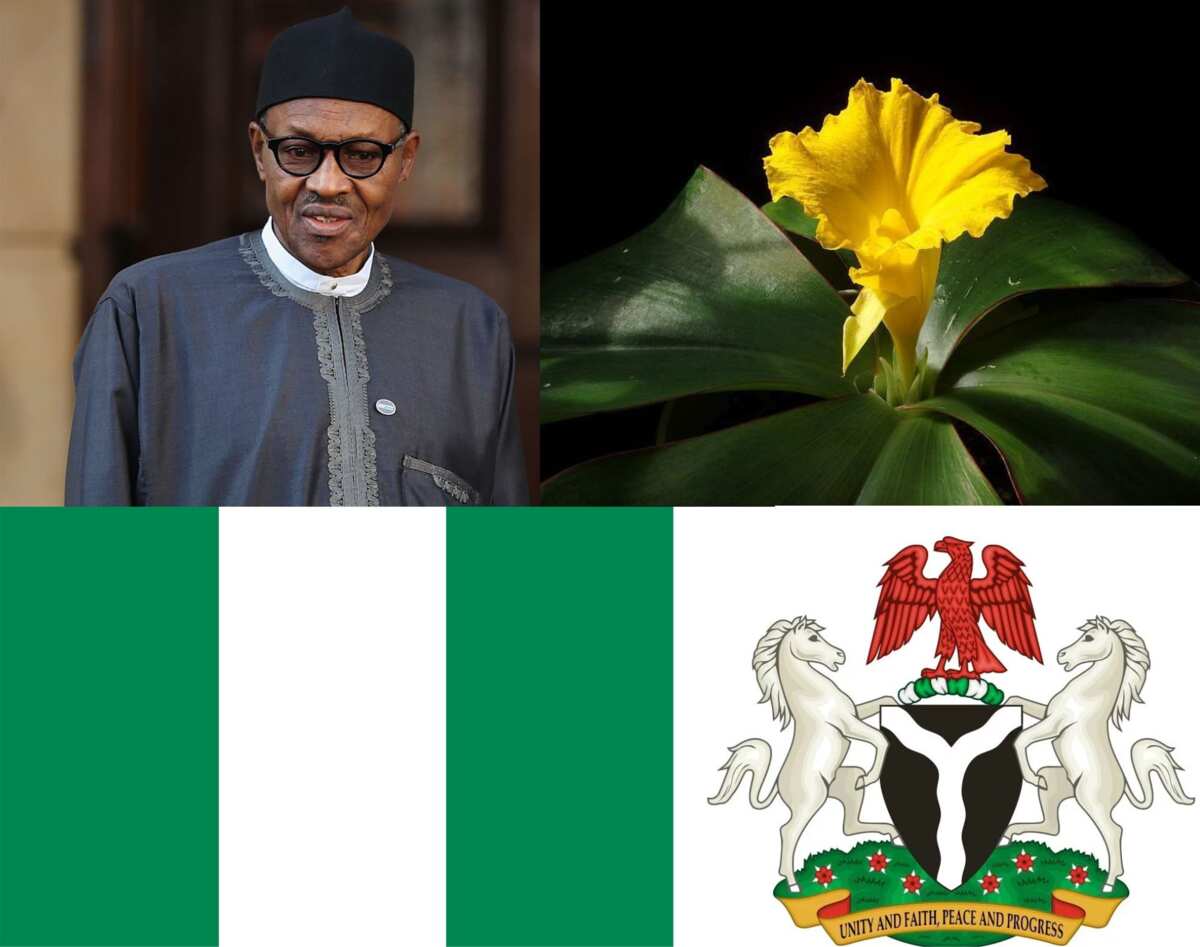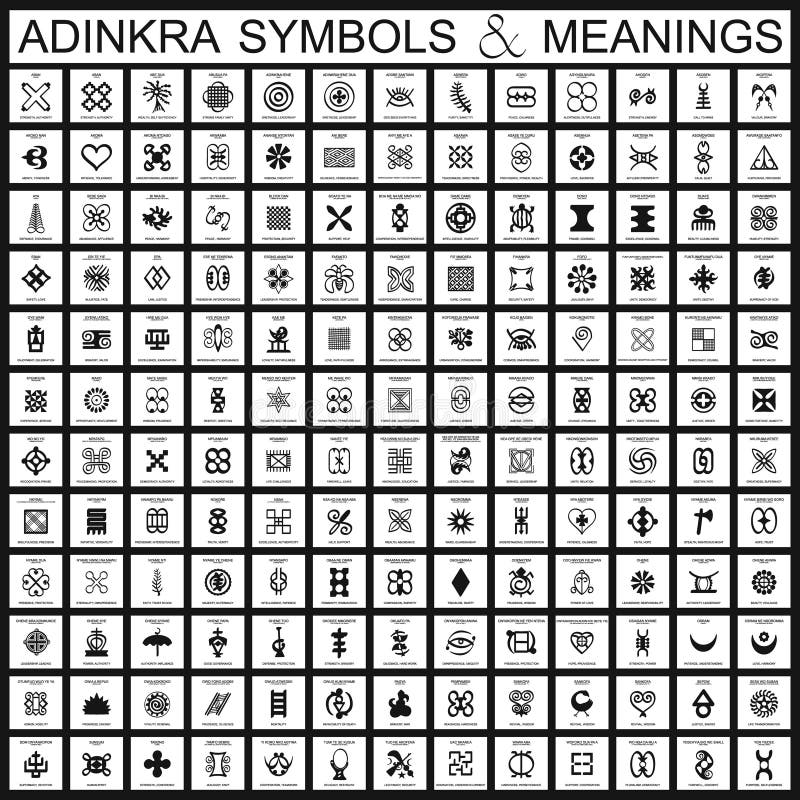Nigerian Symbols And Meanings: Unlocking The Rich Cultural Heritage
Hey there, culture enthusiast! If you're diving into the fascinating world of Nigerian symbols and meanings, you're in for a treat. Nigeria, often referred to as the "Giant of Africa," is not just a land of vibrant colors and diverse traditions but also a treasure trove of symbolic expressions. These symbols play a crucial role in Nigerian society, shaping its identity, values, and history. So, buckle up as we embark on a journey to uncover the hidden stories behind these captivating Nigerian emblems.
Nigerian symbols are more than just artistic designs; they are the heartbeat of the nation's cultural identity. From the majestic adinkra symbols to the intricate patterns of traditional clothing, each symbol tells a story, conveys a message, and reflects the deep-rooted traditions of the Nigerian people. Whether you're a student, traveler, or simply someone curious about African culture, understanding these symbols will enrich your appreciation of Nigeria's rich heritage.
As we explore the world of Nigerian symbols and meanings, we'll delve into their origins, significance, and how they influence modern-day Nigeria. You'll discover how these symbols connect the past with the present, creating a bridge between tradition and contemporary life. So, let's dive in and uncover the secrets behind these powerful emblems that define Nigerian culture!
Read also:Unveiling The Secrets Of Miaz Amp Girthmaster A Comprehensive Guide
Table of Contents
- The Historical Roots of Nigerian Symbols
- Cultural Significance of Nigerian Symbols
- Types of Nigerian Symbols
- Nigerian Symbols in Modern Society
- Nigerian Symbols in Art and Design
- Spiritual Meanings of Nigerian Symbols
- Tribal Symbols and Their Meanings
- Key Nigerian Symbols and Their Meanings
- Impact of Nigerian Symbols on Global Culture
- Preserving Nigerian Symbols for Future Generations
The Historical Roots of Nigerian Symbols
Nigerian symbols have been around for centuries, tracing their origins back to ancient civilizations and kingdoms. These symbols were originally used as a form of communication, storytelling, and spiritual expression. Imagine a time when people relied on visual cues to convey complex ideas and emotions. That's exactly what these symbols did! They were etched onto pottery, carved into wood, and painted on walls, leaving behind a legacy that continues to inspire today.
One of the earliest examples of Nigerian symbols can be found in the Nok civilization, which dates back to around 500 BCE. The Nok people were known for their intricate terracotta sculptures, which often featured symbolic motifs. These symbols represented everything from fertility and prosperity to protection and power. Over time, these symbols evolved and were adopted by various ethnic groups across Nigeria, each adding their unique twist to the original designs.
Cultural Significance of Nigerian Symbols
In Nigerian culture, symbols hold immense significance. They are not just decorative elements but carry deep cultural and spiritual meanings. For instance, the Chi symbol, which represents destiny and personal spirit, is widely used in Igbo culture. Similarly, the Adinkra symbols, though originating from Ghana, have found their way into Nigerian art and design, symbolizing concepts like wisdom, strength, and unity.
These symbols are often used in ceremonies, rituals, and everyday life. Whether it's a wedding, funeral, or initiation rite, Nigerian symbols play a vital role in marking important life events. They serve as a reminder of the values and traditions that bind the community together. In a rapidly changing world, these symbols act as a cultural anchor, keeping the Nigerian spirit alive and vibrant.
Types of Nigerian Symbols
Nigerian symbols can be broadly categorized into three types: traditional, spiritual, and modern. Traditional symbols are those that have been passed down through generations, often tied to specific ethnic groups. Spiritual symbols, on the other hand, are closely linked to religious and mystical practices. Lastly, modern symbols are those that have emerged in response to contemporary needs and influences.
- Traditional Symbols: These include the Chi symbol, the Sankofa bird, and the Osun river goddess symbol.
- Spiritual Symbols: Examples include the Ogun symbol, which represents strength and warfare, and the Ifa divination symbols used in Yoruba spirituality.
- Modern Symbols: These can be seen in Nigerian fashion, music, and art, blending traditional motifs with contemporary styles.
Nigerian Symbols in Modern Society
In today's world, Nigerian symbols are making a comeback in a big way. From high fashion runways to digital art, these symbols are being reimagined and celebrated by a new generation. Designers like Lisa Folawiyo and Deola Sagoe are incorporating traditional motifs into their collections, creating stunning pieces that honor Nigeria's rich heritage.
Read also:Birthday Number Unveiling The Hidden Secrets Of Your Birth Date
Moreover, Nigerian symbols are finding their way into popular culture, thanks to the global rise of Afrobeats and Nollywood. Artists like Burna Boy and Wizkid often use these symbols in their music videos and album covers, bringing them to a worldwide audience. This fusion of tradition and modernity is not only preserving Nigerian culture but also promoting it on a global scale.
Nigerian Symbols in Art and Design
Artists and designers in Nigeria are using symbols as a powerful medium of expression. Through their work, they explore themes of identity, history, and social issues. For instance, the famous Nigerian artist Bruce Onobrakpeya often incorporates traditional symbols into his prints and sculptures, creating thought-provoking pieces that challenge viewers to reflect on their cultural roots.
In the realm of digital design, Nigerian creatives are using technology to give these symbols a new lease of life. Apps and websites dedicated to Nigerian art and culture are popping up, offering users a chance to explore and interact with these symbols in innovative ways. Whether it's a virtual museum tour or an augmented reality experience, technology is helping to make Nigerian symbols more accessible than ever before.
Spiritual Meanings of Nigerian Symbols
Spirituality is at the core of many Nigerian symbols, reflecting the deep connection between the people and their beliefs. For example, the Ogun symbol, which depicts a warrior wielding a machete, is associated with strength, courage, and protection. In Yoruba culture, Ogun is revered as the god of iron and technology, making this symbol particularly relevant in today's tech-driven world.
Similarly, the Osun river goddess symbol represents fertility, love, and prosperity. It is often used in ceremonies related to childbirth and marriage, symbolizing the blessings of life and abundance. These spiritual symbols serve as a reminder of the divine forces that guide and protect the Nigerian people, providing comfort and inspiration in times of need.
Tribal Symbols and Their Meanings
Nigeria is home to over 250 ethnic groups, each with its unique set of symbols and meanings. The Yoruba, Igbo, and Hausa are among the largest ethnic groups, and their symbols play a significant role in shaping Nigerian culture. For instance, the Yoruba people use the Ifa divination symbols to communicate with the spirits, seeking guidance and wisdom.
The Igbo people, on the other hand, rely on the Chi symbol to represent their personal destiny and spiritual connection. Meanwhile, the Hausa people use geometric patterns and calligraphy to express their Islamic faith and cultural identity. These tribal symbols not only reflect the diversity of Nigerian culture but also highlight the unity that exists within this diversity.
Key Nigerian Symbols and Their Meanings
Let's take a closer look at some of the most prominent Nigerian symbols and their meanings:
- Chi Symbol: Represents destiny and personal spirit in Igbo culture.
- Sankofa Bird: Symbolizes the importance of learning from the past to build a better future.
- Osun River Goddess: Represents fertility, love, and prosperity in Yoruba culture.
- Ogun Symbol: Depicts strength, courage, and protection in Yoruba spirituality.
- Adinkra Symbols: Used in art and design, these symbols convey wisdom, strength, and unity.
Impact of Nigerian Symbols on Global Culture
Nigerian symbols are having a profound impact on global culture, influencing everything from fashion to music to art. As more people around the world discover the beauty and significance of these symbols, they are incorporating them into their own creative expressions. This cross-cultural exchange is not only enriching global culture but also promoting mutual understanding and appreciation.
Moreover, Nigerian symbols are playing a crucial role in the decolonization of art and design. By reclaiming and celebrating their cultural heritage, Nigerians are challenging the dominant narratives and asserting their place in the global cultural landscape. This movement is empowering not just Nigerians but also other marginalized communities around the world.
Preserving Nigerian Symbols for Future Generations
Preserving Nigerian symbols is essential for maintaining the cultural identity of the nation. Efforts are being made to document and archive these symbols, ensuring that they are not lost to future generations. Educational institutions, museums, and cultural organizations are playing a key role in this preservation effort, offering programs and resources to teach people about the significance of these symbols.
Additionally, technology is being harnessed to create digital archives and interactive platforms that allow people to explore Nigerian symbols from anywhere in the world. By combining traditional methods with modern technology, we can ensure that these symbols continue to inspire and educate for years to come.
Conclusion
In conclusion, Nigerian symbols and meanings are a testament to the rich cultural heritage of Nigeria. They connect the past with the present, bridge the gap between tradition and modernity, and inspire people around the world. As we've explored in this article, these symbols are not just visual representations but powerful tools for communication, storytelling, and spiritual expression.
So, the next time you come across a Nigerian symbol, take a moment to appreciate its beauty and significance. And if you're feeling inspired, why not share this article with your friends and family? Together, we can celebrate and preserve the incredible cultural legacy of Nigeria. Don't forget to leave a comment below and let us know which Nigerian symbol resonates with you the most!


